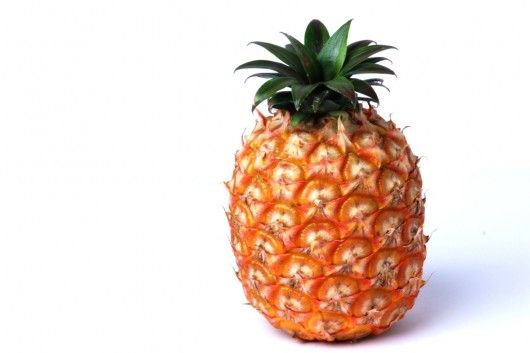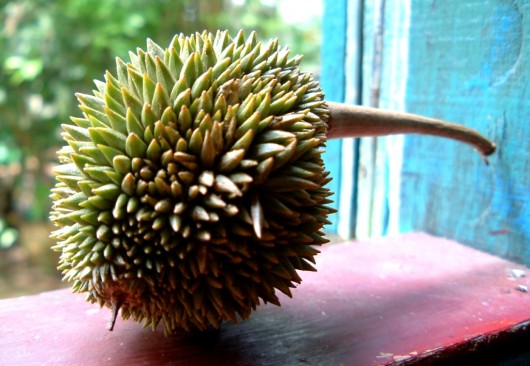The health benefits of pineapple juice are undeniable. It contains high levels of vitamins, minerals, and enzymes. Numerous experts tout the physical rewards of drinking fresh pineapple juice on a daily basis for alleviating symptoms of certain ailments, such as arthritis, post-operation swelling, heart disease, and diabetes. Even with this concise information there may be people who have reservations. There is conclusive evidence that pineapple juice contains significant amounts of vitamin C, bromelain, potassium, and thiamine. The above mentioned ingredients benefits the human body when utilized correctly, which in turn proves that pineapple juice is beneficial as well.
Health Benefits Of Vitamin C
Vitamin C has long been utilized as an immunity booster, as well as a stimulator of collagen production, which aids in tissue repair and overall health of skin. In addition, vitamin C aids in metabolizing fats and increasing the body’s absorption of iron. A recent study in the, “American Journal of Clinical Nutrition”, revealed that participants with the highest concentrations of vitamin C in their blood were linked with 42% reduced risk of stroke, as opposed to those with decreased concentrations. Many physicians agree that a high level of vitamin C in the blood is a clear marker of overall satisfactory health. Vitamin C is one of the first nutrients to be depleted in individuals who abuse alcohol, smoke, and are under a significant amount of stress, which is why a person with high levels of vitamin C will, more likely than not, be in good overall health.

Health Benefits Of Bromelain
Bromelain, or otherwise known as bromelin, is an enzyme that is found naturally in pineapple juice and is also taken as a supplement by those with digestive issues because of it’s efficiency in that regard. In some cases, oncologists recommend bromelain to their patients because of it’s effectiveness in breaking down proteins in the body. Bromelain has shown to improve illnesses related to internal inflammation; for example, arthritis, colitis, and asthma, which are diseases that can cause severe debilitation. A six-month research study performed on mice with experimental colitis showed promising results. The mice were treated with bromelain purified from the stem or fresh juice of a pineapple and the severity of their colon inflammation was substantially reduced. It must be noted that bromelain can only be found in fresh, ripe pineapples because it is likely to be destroyed when introduced to heat, which is why bromelain cannot be found in canned pineapples.
Health Benefits Of Potassium
Potassium is a vital mineral that can be found in all plant and animal life, and is especially abundant in soil, seawater, as well as in fruits and vegetables – including pineapple juice. Potassium is essential for maintaining proper electrolyte balance and is one of the main components in adequate heart function. A study performed on patients with high blood pressure revealed that taking potassium supplements regularly decreased their systolic blood pressure by at least 8 points. The potassium found in pineapple juice has shown ample health benefits; even so, all good things must be taken in moderation. Patients who have chronic kidney disease and acute renal failure need to be especially careful in regard to beginning a potassium regiment. Lastly, asking a physician before beginning any kind of supplement is a wise decision.
Health Benefits Of Thiamine
Thiamine, or otherwise known as vitamin B1, is an immensely important aspect of good general health. Thiamine aids the body in processing carbohydrates, fats, and proteins. It is imperative for the human body to have thiamine because it produces adenosine triphosphate, which is a molecule that aids the body in obtaining energy. Patients with chronic fatigue syndrome and children with heart disease have been shown to have low levels of thiamine. In some cases, a thiamine supplement is necessary; however, eating plenty of fruits and vegetables with a high thiamine content may be a safer alternative to a thiamine supplement. The health benefits of pineapple juice are directly related to it’s thiamine content, which is what makes drinking fresh pineapple juice an all-around positive concept.
In conclusion, fresh pineapple juice is rich with extraordinary vitamins, minerals, and enzymes. The key word is, “fresh”, because pineapple juice in any other form has little to no beneficial ingredients. A ripe pineapple, juiced at home, is, more than likely, the very best way to derive those advantageous ingredients. As mentioned in the above paragraphs, all good things must be taken in moderation in order to obtain the greatest possible effect. Furthermore, it is imperative for all people who wish to begin drinking pineapple juice for health reasons, to consult a physician before doing so. Once you do that, drinking fresh pineapple juice on a daily basis will be a delicious and nutritious experience.

